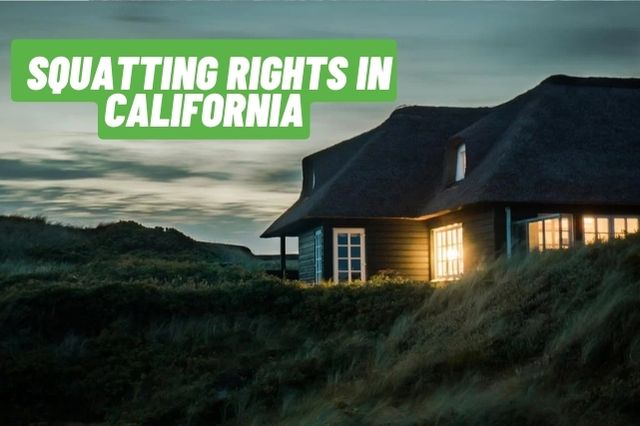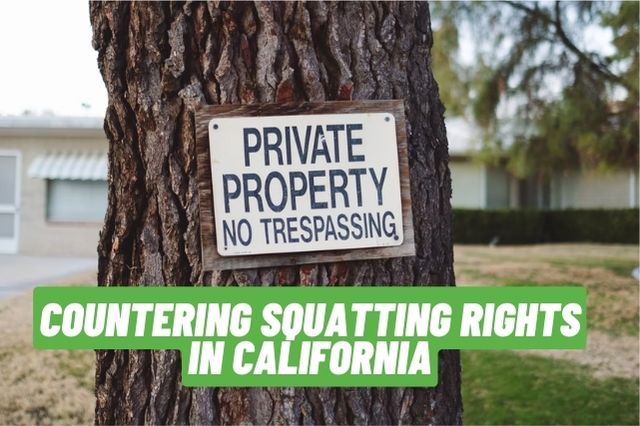
Squatters Rights In California 2023
Several landlords are stressed because of Squatter. These landlords have to go through the court system to get the Squatter removed, and it can be a long and expensive process. In some cases, the Squatter is allowed to stay on the property, and the landlord is left with damaged property and no way to get the Squatter removed.
Because several people didn’t know about Squatters Rights In California, they faced several problems regarding their land. We will discuss all Squatter Rights In California in this article, so you have to read this article at the end.
Who Is a Squatter in California?
A squatter is someone who occupies an abandoned or unoccupied property without the owner’s consent. There are many types of squatters, but the most common are people who are homeless or have low income.
Squatters can be a thorn in the side of property owners because they can cause damage to the property and increase crime in the area. Squatters also have certain rights that protect them from being removed from the property, which can make it difficult for the property owner to get them to leave.
Squatters Rights In California
Squatters are people who occupy an abandoned or unoccupied property without the legal right to do so. In some cases, squatters may have an agreement with the former owner of the property to allow them to stay there rent-free. In other cases, squatters may take over a property illegally.
Squatters have a number of legal rights, depending on the country in which they reside. Generally, squatters have the right to remain on the property until they are evicted by the police or the rightful owner of the property. They also have the right to reasonable access to water, electricity, and other things.
In California, a squatter has the right to occupy an abandoned or unoccupied property if they can prove they have been using and occupying the property for five years or more without interruption. If the squatter can’t prove they’ve been using and occupying the property for five years or more, they may still be able to squat if they can show that they have made a good-faith effort to contact the property owner.
The squatter must also respect the rights of the property owner. If the squatter violates any of these rights, the property owner may evict him or her.
How Real Estate Effects?
Squatters’ rights, which exist in California and a few other states, give people who are not the legal owners of a property the right to live in it, or use it for some other purpose, without paying rent or obeying the usual rules about tenancy.
The idea behind squatter’s rights is that people who put time and effort into improving an abandoned or neglected property—cleaning it up, repairing it, and so on—should be rewarded by being allowed to live in it without having to pay rent. In most cases, the legal owner of the property can evict the squatter by going to court.
Squatters’ rights are a hot-button issue in California, but they could also affect real estate transactions in any state. The basics of the law are that if someone occupies an abandoned or foreclosed property without the owner’s consent, they can gain legal ownership of the property after a certain number of years.
This law varies from state to state, so it’s important to do your research before buying or selling a property. In California, the law is known as adverse possession. It has been on the books since 1872, and it allows squatters to take legal ownership.
Adverse Possession in California
If you are a property owner in California, it’s important to understand the concept of adverse possession. Adverse possession is a legal principle that allows a person who is not the legal owner of a piece of property to gain ownership of it by occupying and using the property for a specific period of time.
The requirements for establishing adverse possession vary from state to state, but in California, the person claiming adverse possession must demonstrate that (1) he or she has been in actual possession of the property for at least five years, (2) he or she has paid all taxes on the property during that time.
In order for someone to take possession of land that is not theirs through adverse possession in the state of California, they must meet the following requirements:
- The individual must occupy the land exclusively and under color of title
- The individual must have paid or tendered rent for the land
- The individual must have made improvements to the land
- The individual must have been in possession of the land for a period of 5 years or more.
Check Out:- Best places to live in San Diego

Countering Squatting Rights in California
Squatters can be a huge problem for property owners in California. Often, squatters will claim tenant rights because they signed a fraudulent lease agreement. This can make it very difficult to remove them from the property.
One way to combat squatting rights is to establish a clear timeline for the eviction process. This will help to ensure that squatters do not have an opportunity to claim tenant rights. It is also important to make sure that all eviction notices are properly served. If you are unsure of how to evict squatters, it is best to consult with a legal professional.
The most common way is to go through the court system and file a lawsuit. However, this can be expensive and time-consuming, and there is no guarantee that you will win.
Conclusion
So, these are the Squatters Rights In California and all about it you should know. There has been a recent increase in squatters taking over properties, in some cases leaving the rightful owner with no legal recourse. This is a problem because it leaves the property vulnerable to damage and also deprives the rightful owner of income from rent or sale.
In California, the law is not very clear on this issue. Squatters can be classified as tenants, trespassers, or intruders. This lack of clarity makes it very difficult for property owners to take legal action against squatters.
